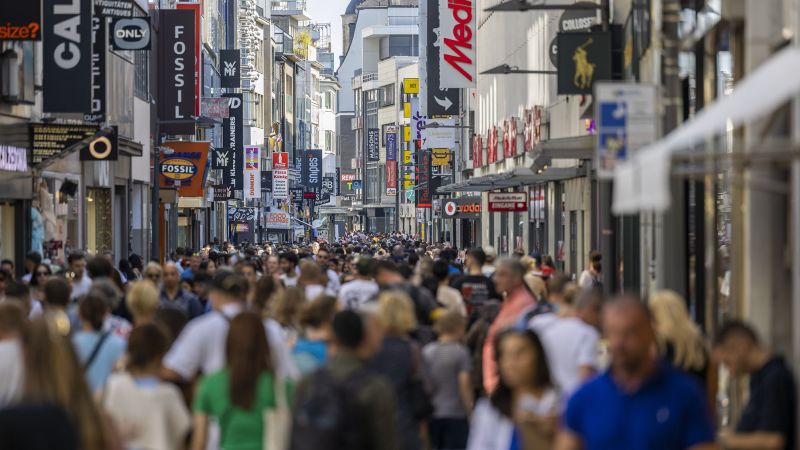Inflation in Europe slowed for the second straight month in June.
Consumer prices in the 20 countries that use the euro rose 5.5% this month compared with a year ago, according to an estimate released by the European Union’s statistics agency Friday. That’s down from 6.1% in May.
Economists polled by Reuters had expected slightly higher inflation of 5.6% this month.
However, core inflation — which strips out volatile food and energy prices — edged up.
The increase was because of a statistical anomaly, Christoph Weil, a senior economist at Commerzbank, wrote in a note.
Price rises in June last year were artificially depressed due to the temporary introduction of a cheap public transport ticket in Germany, Europe’s biggest economy. That meant prices in June this year looked significantly higher.
“This effect will drop out of the year-on-year comparison again in September,” Weil said.
Food, alcohol and tobacco prices remained the main driver of inflation, rising 11.7% in June, down from 12.5% the month before.
High supermarket prices for staple products have led to accusations of profiteering among food producers and retailers.
Sweden’s competition watchdog said Tuesday that the sticker price of eggs had risen by “more than what can be justified” by retailers’ costs, though it added that firm conclusions could not be drawn while its investigation was at an early stage.
Jack Allen-Reynolds, a senior European economist at Capital Economics, said the European Central Bank was unlikely to stop hiking interest rates in its fight against inflation, predicting another increase of a quarter of a percentage point in July.
The central bank has now raised the cost of borrowing at eight consecutive meetings since July last year. The benchmark interest rate in the euro area stands at 3.5%, the highest since May 2001.
“With underlying price pressures likely to persist, we think there is a good chance of another hike at the following meeting in September too,” Allen-Reynolds said in a note.
Read the full article here




